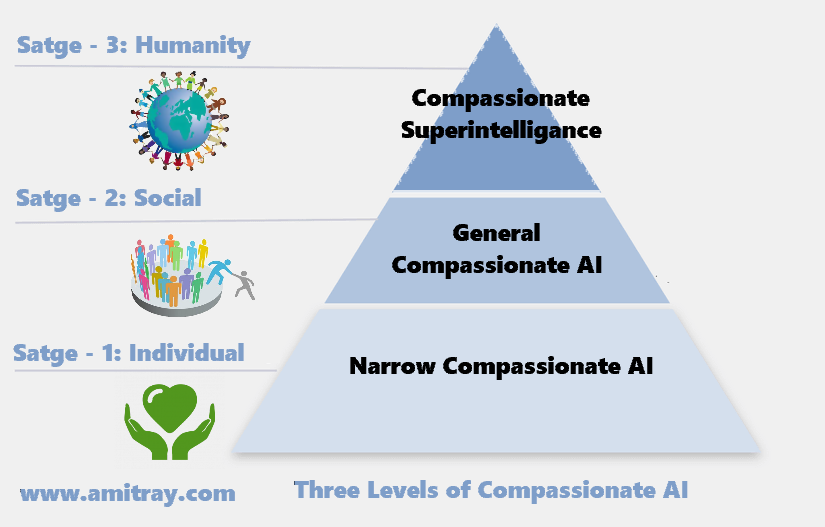Compassionate Artificial Intelligence Scopes and Challenges
Compassionate Artificial Intelligence Scopes and Challenges
With the advancement of AI and nuclear war technology, gradually mankind is moving towards a great threat. Compassionate artificial intelligence is the way to come out of that threat. Here, Sri Amit Ray talks about how artificial intelligence, neural networks, deep learning, reinforcement learning and other machine learning technologies can be used for designing advance compassionate artificial intelligence systems. Dr. Ray discusses the scopes, issues and frameworks to include compassion, kindness and empathy in future AI systems.

Need for Compassionate Artificial Intelligence Systems
One may question why it is useful to study compassion in machines at all. Compassion is an important part of human intelligence. The main objective of AI is to serve humanity in an intelligent manner. As AI technology is improving, serving humanity on the surface level is not sufficient. AI can serve humanity in much better way in a much deeper sense. Compassion, kindness and empathy are the components of higher human intelligence and to be true intelligent, artificial intelligence must incorporate them in the system. The scope and benefits of compassionate AI are many. Some of the requirements for compassionate AI are as follows:
Robots are leaving the realm of the industry and entering into our homes and workplaces. … Read more..
